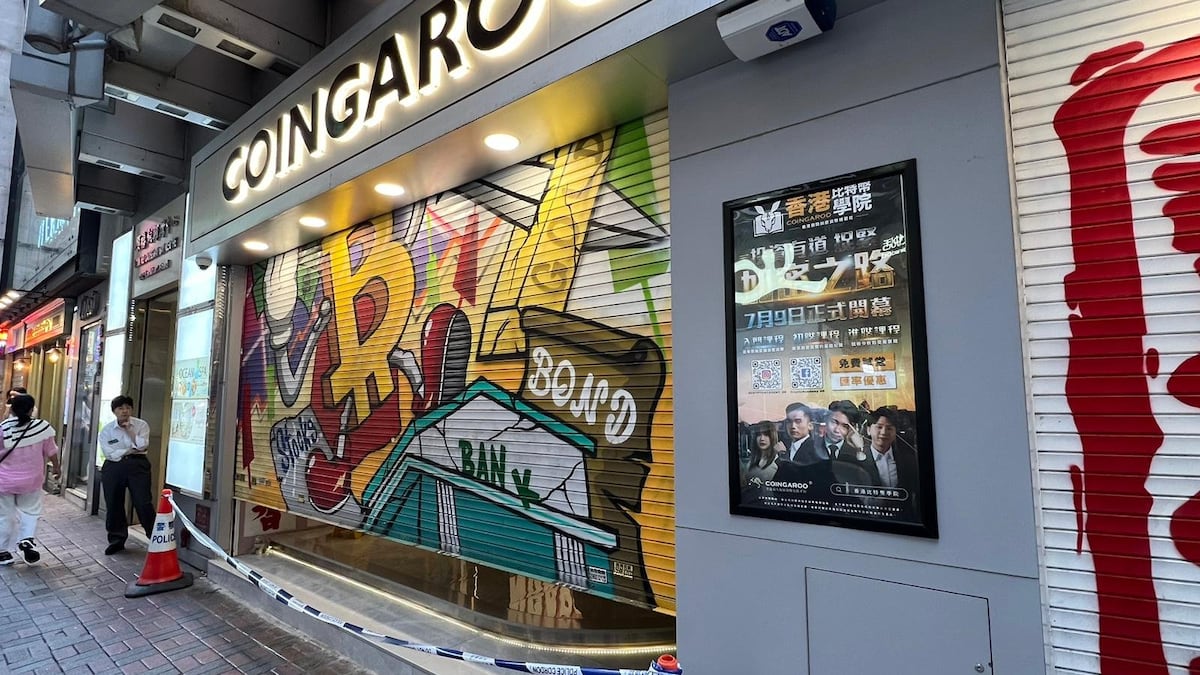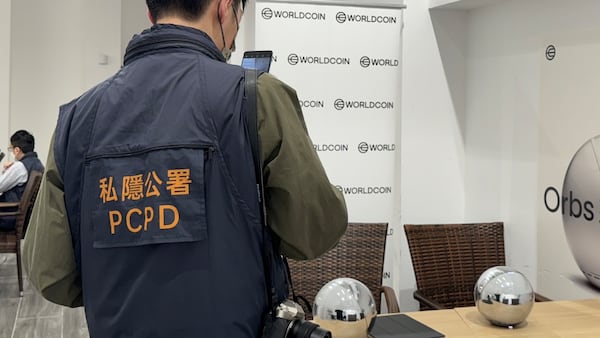- Hong Kong officials are struggling to rein in crypto fraud.
- South Korea says crypto crime up almost 50%.
- The Philippines is planning a CBDC by 2026 but it won't use blockchain.
In the crypto world, Hong Kong is famed for the scores of cryptocurrency trading shops that line the streets from Mong Kok to Causeway Bay. With their neon signs and NFT displays, these over-the-counter outlets epitomise the city’s freewheeling crypto culture.
That may be about to change.
On February 8, Hong Kong regulators proposed a sweeping crackdown that would require over-the-counter, or OTC, shops to get a new type of licence, maintain a local management office, and provide transparent transaction data.
The regime is still in the planning stage, and the public and the crypto industry can weigh in on the proposal until April 12.
But the initiative could be a game changer for Hong Kong by subjecting OTC outlets to the regulations for virtual assets under the Anti-Money Laundering and Counter-Terrorist Financing Ordinance, which came into force last June.
‘In the past, there were suspicions that criminals used virtual asset exchange shops to carry out fraud and illegal activities.’
— Johnny Ng, Hong Kong legislator
The government plans to include only “spot trade of any virtual assets for any money” under the OTC category, leaving peer-to-peer trading outside its scope.
Under the proposed regulatory framework, OTC traders would be required to obtain a licence from the Commissioner of Customs and Excise.
They would also have to reveal their ownership structure to officials. Hong Kong has been plagued by a number of online exchanges controlled by murky offshore corporate entities or individuals.
The owners of JPEX, an exchange suspected of ripping off investors of an estimated $200 million, have still not been named by police more than five months into their investigation.
Authorities have made dozens of arrests in the case but no one has been charged.
In addition to its online platform, JPEX appeared to fund a network of physical OTC crypto shops across the city, many of which were fronted by local celebrities and influencers.
Following raids in September on the storefronts, none appear to have reopened. At one in Kowloon, staff appear to have left in such a rush that several cups of months-old bubble tea are still on the table by the reception.
Physical crypto outlets have long thrived in Hong Kong. But last year, government officials admitted they didn’t actually know how many operated in the city.
They now say there was around 200 physical virtual asset OTC outlets, including ATMs, and about 250 digital platforms actively engaged in buying and selling virtual asset services in Hong Kong.
Johnny Ng, a member of Hong Kong’s Legislative Council, said more stringent regulation will help Hong Kong grow into a “global web3 centre” while protecting consumers.
“In the past, there were suspicions that criminals used virtual asset exchange shops to carry out fraud and illegal activities,” Ng said in a post on X.
“Government supervision is conducive to protecting investors and promoting the compliance development of the Web3 industry.”
South Korea hit with surge in crypto scams
Hong Kong isn’t the only Asian locale struggling with crypto crime.
South Korean authorities this week reported a 49% increase in suspicious cryptocurrency transaction reports in 2023, totalling 16,076 cases, according to the Financial Intelligence Unit, or FIU.
This surge in reports, linked to potential money laundering, market manipulation, or illegal drug trades, underscores active efforts to enhance vigilance among local cryptocurrency service providers.
Additionally, the FIU noted a 90% year-over-year increase in crypto crime cases forwarded to law enforcement agencies for further investigation.
The development came on the back of a brewing scandal. Winnerz, a sports blockchain platform, is being investigated by the National Police Agency following user complaints they can’t withdraw their money.
Just like JPEX in Hong Kong, it used celebrities and influencers to attract investors, officials say.
Philippines central bank plans blockchain-less CBDC
Eli Remolona, the governor of the central bank in the Philippines, said a digital version of the peso is “likely” by 2026 — but it won’t be blockchain-based.
In a talk with journalists on February 12, Remolona announced that the Philippine central bank would instead rely on its own payment and settlement system to operate the central bank digital currency, or CBDC.
“Other central banks have tried blockchain, but it didn’t go well,” Remolona told a local media outlet.
The focus on a wholesale CBDC, intended for transactions mediated by banks, reflects a cautious approach to digital currency adoption. Sweden and China have pursued similar tacks.
The Philippines isn’t the only country eschewing blockchain for its CBDC. China, which arguably has the most advanced CBDC pilot to date, has been somewhat vague about the inner workings of its digital currency.
But it doesn’t use blockchain.
Got a story about crypto and blockchain in Asia? Contact me at callan@dlnews.com.







